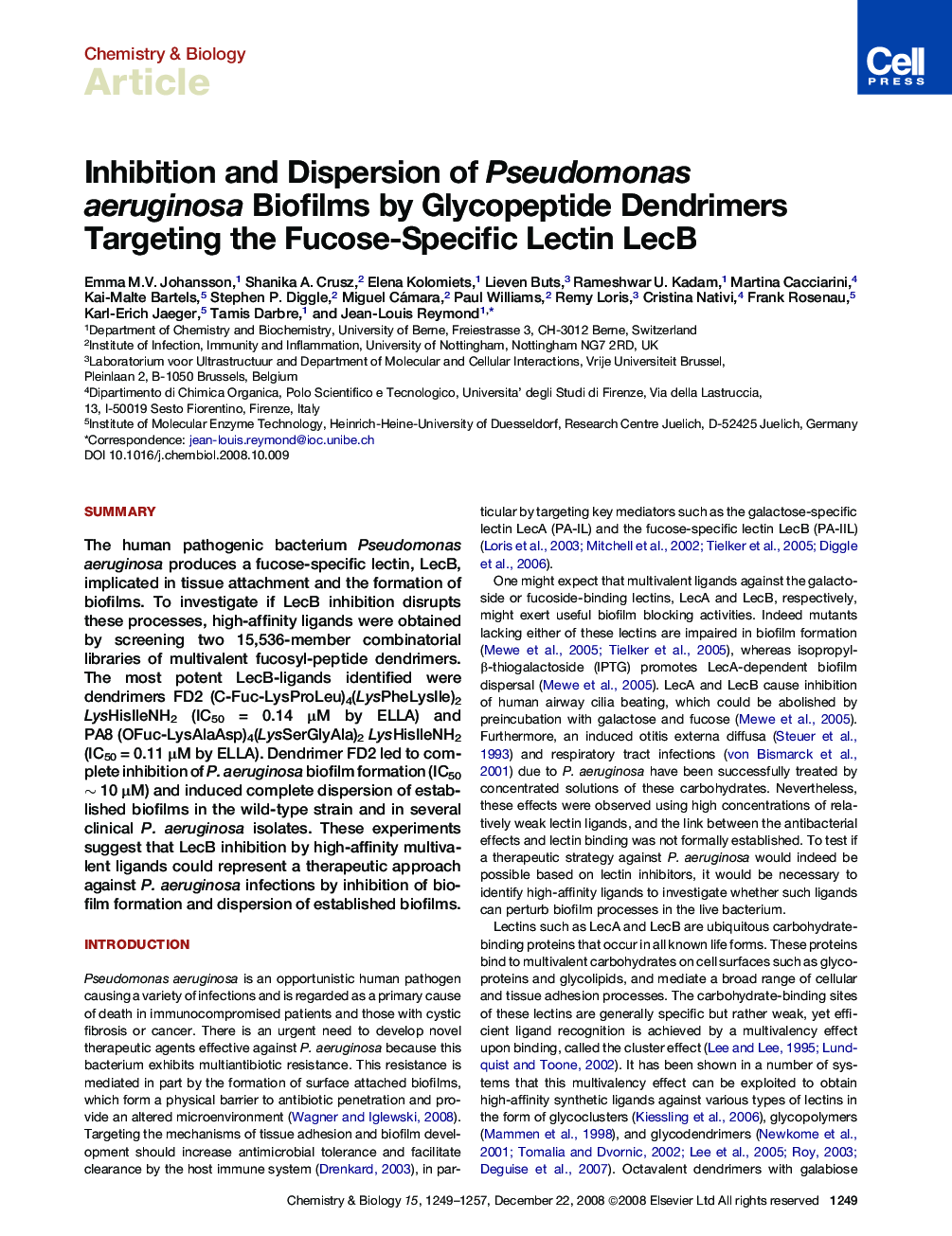| کد مقاله | کد نشریه | سال انتشار | مقاله انگلیسی | نسخه تمام متن |
|---|---|---|---|---|
| 1392688 | 983765 | 2008 | 9 صفحه PDF | دانلود رایگان |

SummaryThe human pathogenic bacterium Pseudomonas aeruginosa produces a fucose-specific lectin, LecB, implicated in tissue attachment and the formation of biofilms. To investigate if LecB inhibition disrupts these processes, high-affinity ligands were obtained by screening two 15,536-member combinatorial libraries of multivalent fucosyl-peptide dendrimers. The most potent LecB-ligands identified were dendrimers FD2 (C-Fuc-LysProLeu)4(LysPheLysIle)2LysHisIleNH2 (IC50 = 0.14 μM by ELLA) and PA8 (OFuc-LysAlaAsp)4(LysSerGlyAla)2LysHisIleNH2 (IC50 = 0.11 μM by ELLA). Dendrimer FD2 led to complete inhibition of P. aeruginosa biofilm formation (IC50 ∼ 10 μM) and induced complete dispersion of established biofilms in the wild-type strain and in several clinical P. aeruginosa isolates. These experiments suggest that LecB inhibition by high-affinity multivalent ligands could represent a therapeutic approach against P. aeruginosa infections by inhibition of biofilm formation and dispersion of established biofilms.
Journal: - Volume 15, Issue 12, 22 December 2008, Pages 1249–1257